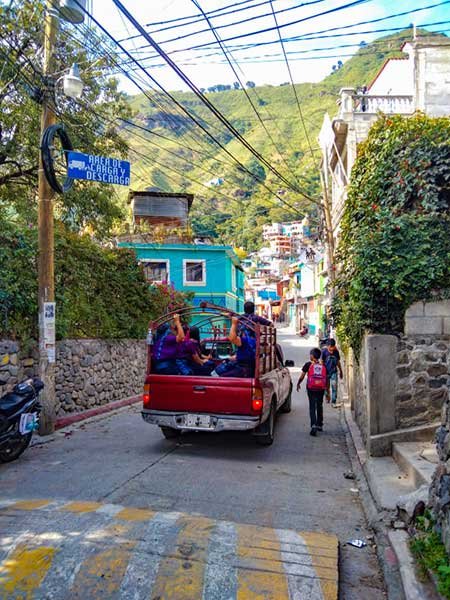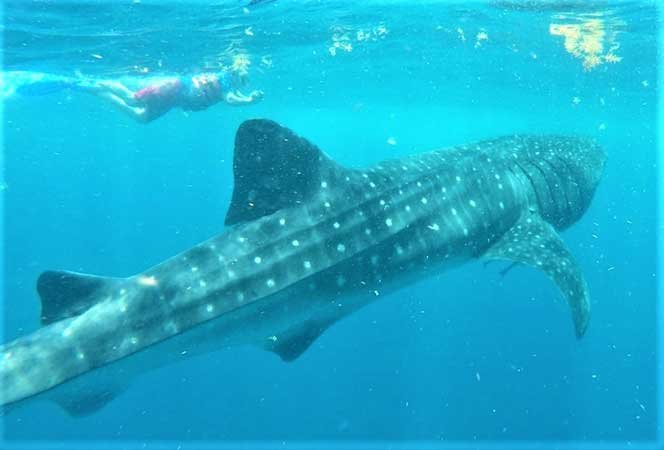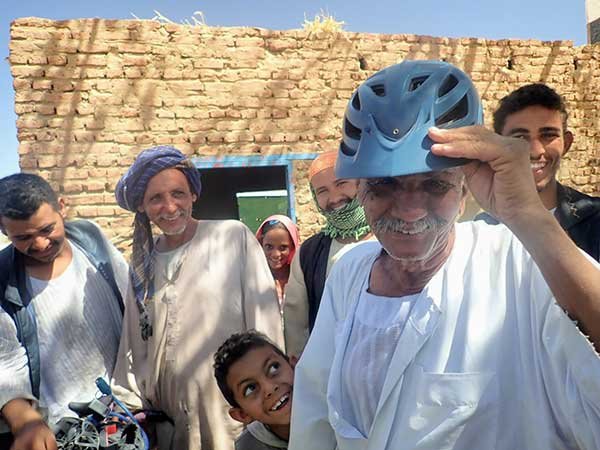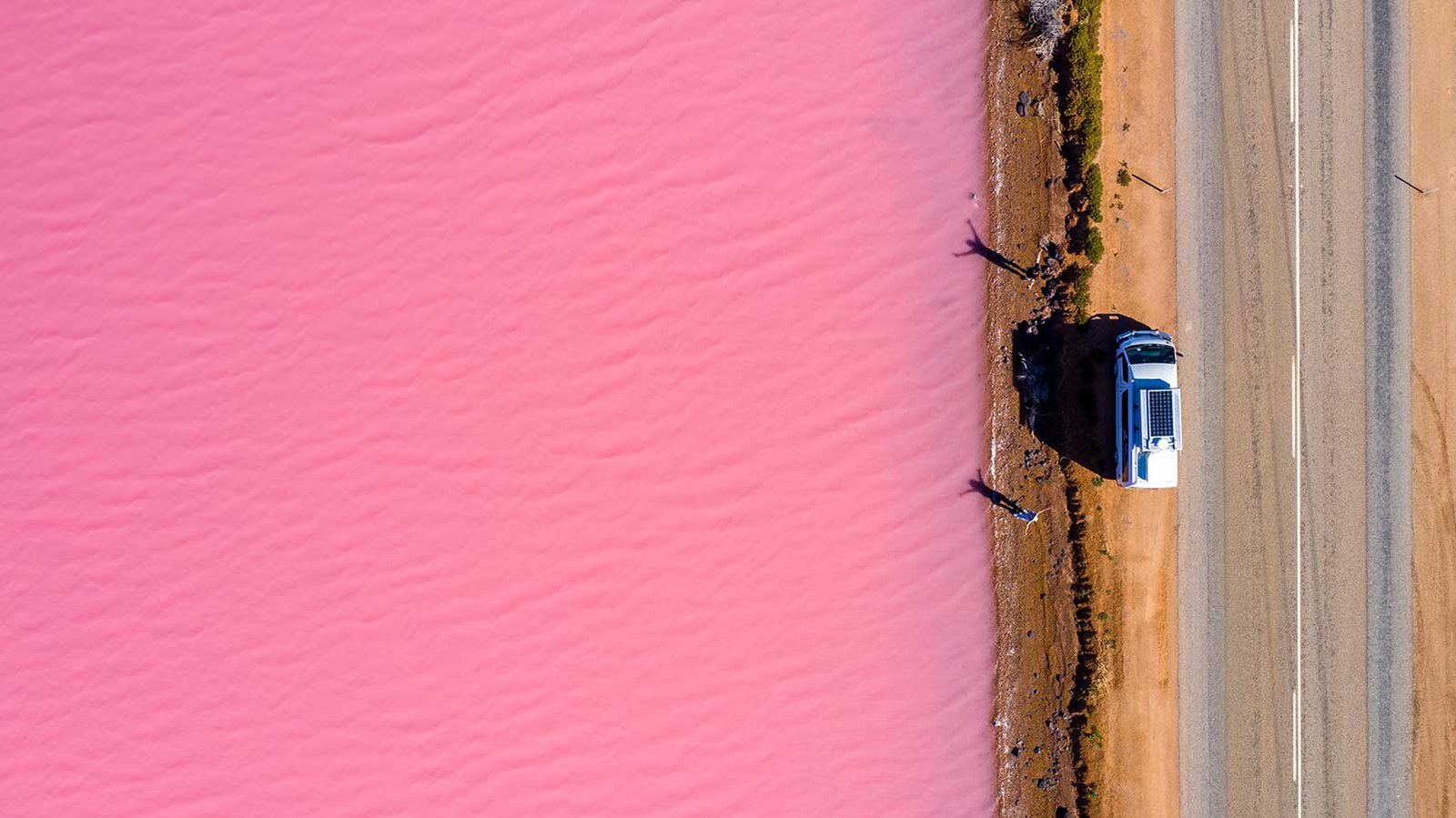Are Travel Bloggers Ruining Travel? How Travel Content Creators Can Help Make The World a Better Place.
Are travel bloggers ruining travel? Should travel content creators not only give value but also have a responsibility to actually create a positive change? Should we make writing sustainable travel a norm? Here is what actual travel bloggers have to say about it.
The idea for this post was born when I was considering visiting Las Coloradas in Mexico. I had limited time last time I visited the country, so I decided to research whether the place was worth visiting.
I didn’t end up going. What I found out, however, inspired me to write this post. I also decided to discuss it with other fellow travel bloggers and travel content creators.
In this article, you will see me asking some polarizing questions. And I will discuss it with my fellow travel bloggers.
Are travel bloggers actually contributing towards environmental devastation? Is the new, media centred travel era making us ignore the people, culture and heritage in pursuit of likes, follows and clicks?
As travel content creators – how much of an actual impact do we have on the environment and people’s attitudes towards travel, and most importantly – what can we do about it. Is it time to take responsibility for creating a positive travel culture?
Do travel blogs we read change the way we see and experience the world?
Some even claim that if you love the planet and want to make a change, you should stop travel blogging altogether. Yes, I have seen those comments.
I aim this article towards everyone. Not only us bloggers, Instagram travel influencers, and so.
If you travel, the chances are that you have searched the web for information about your desired destination. Some articles or photographs might have made you visit this place over another (guilty as charged), take part in activities and trips that bloggers recommended, or climb that volcano for incredible sunrise photos.
Even the bigger question is what actually is travel? Is it going where everyone else has gone, or is it going where we haven’t been?
I am aiming this post at all of us. Those who promote the location and those who follow the recommendations. We are all travellers, we all have an impact, and with that, possibly, responsibilities.
So what happened to Las Coloradas in Mexico.
Las Coloradas (Known as Pink Lakes) is a peculiar place located on the northern coast of the Yucatan peninsula in Mexico, where massive salt evaporation ponds are painted pink from red-coloured algae plankton and brine shrimp that use the salty water as their habitat.
Once hardly visited and off the beaten path suddenly became a go-to destination when an Instagrammer posted a photo of herself floating in the pink lake in the inflatable flamingo.
A somewhat brilliant and seemingly innocent idea created incredible change. These days the place is crammed with organized tours and visitors. So many travellers started coming to the lakes, swimming in (very shallow and very salty) water that the flora started changing and even losing its pink colour.
Lakes are now surrounded by fences, and entering the water or taking photos with a camera is not allowed. The most probable reason for the fence is that it is a salt-producing establishment, but the lakes are also part of the Natural Reserve.
With masses of visitors invading the lakes, the algae and wildlife dispersed. If the tourists’ invasion continued, those lakes would be pink no more.
Now, there are guards to make sure no one enters, and those who do can only do so with the guide.
Would have I gone if the site was still slightly off the beaten path and it wasn’t restricted by fences and visiting limited to hiring an expensive tour guide? I probably would. Guilty as charged.
Finding out about what happened to this site made me rethink and reevaluate my approach to travel blogging. And made me ask questions – am I ruining the places by promoting them? Should I regret writing about Rincon del Mar, a truly undiscovered paradise in Colombia? But I wanted to share my experience! How could I have done it differently?
But there is Other Side to the Story
I did have this thought when after visiting the La Guajira region in Colombia, I was writing an article about my experience. Colombia’s tourism has exploded in the last ten years, and the government is putting a lot of effort and money into some touristic regions. Parts of the country, once inaccessible, poor and riddled with crime, are now thriving tourist hubs where decent wages are earned and job opportunities created every day.
This is not the case in La Guajira, though. The region suffers from a lack of clean drinking water, and kids are often severely malnutritioned, and there is a severe problem with access to health care.
Yet I thought that as its potential is gradually realized, funds will be injected there, and once poor society and indigenous people will be able to earn a decent wage, have access to fresh drinking water and health care. So us visiting those troubled parts of the world might make a difference to the future of these communities. With the growth of tourism, jobs and opportunities are created. Educating about its problems might eventually make a positive change.

So I spoke to few bloggers and travel content creators. I asked them what their thoughts are and how we could move forward and should we make promoting sustainable travel a norm.
More and more people are craving the real. True stories, real people with flaws and real-life experiences and travel guides and stories that will be coming from a heartfelt experience and not just researched content.
With that, there is an opportunity. Opportunity to genuinely reach people.
The days of photoshopped flowery dresses on top of Santorini Hill or in the middle of the mountains are slowly fading away. So I hope.
This world is changing and often not in a direction we would want to see. Climate change, lack of tolerance, cancel culture, ever-present social media influence. But also, the recent pandemic seriously damaged the travel industry. As travel creators and influencers, we have a responsibility to create the shift in peoples approaches to travel. To set a new standard for travel and be the change we want to see.
Are Travel Bloggers Ruining the Travel?
Victoria from Guide Your Travel said:
Tourism to me is full of Paradoxes. One of the most prominent and puzzling parts of this to me is how we glorify places and how they used to be. You’ll hear people talk about how a place is not what it once was because there are now high-rises right next to the beach and hoards of tourists arriving by the bus load.
You’ve probably read dozens of articles teaching you how to find the quiet spots, authentic restaurants where the locals eat or non-touristy places. Locations like Venice, Paris, Bali or Positano are dismissed as being too crowded and not authentic anyway. But aren’t we ourselves the problem when we come here? If you find a quiet cafe in Paris that only the locals go to, isn’t your presence as a tourist what ruins it for others in the future?
Conscious and sustainable travel is all about self awareness and how we can enjoy the places we see without harming them. Tourism is a great thing and we don’t always appreciate it. Like everyone I’m guilty of seeking complaining when there’s a line to take photos in Santorini during sunset or saying how Bali was so much better ten years ago. Instead we should focus on how lucky we are to be seeing these places and recognise that we are all tourists and all seek the same experiences to some extent.
We’re not alone in this world so why do we feel like we should be when we travel?
So What Can We Do to Create Positive Change in Travel
Through our content, we have the power to influence other travellers not only by showing the places but also by ‘showing the way’.
I always say that travel is the best education one could receive. It opens our minds and hearts and widens our horizons. And I am sure many of you would agree.
So while we are having an amazing time travelling, how about sharing not only the experience and advice but also recourses in which we can make it a better, healthier world.
The Enviroment
Some claim that there is no way any form of long-distance travel could be sustainable. That if any blogger is serious about the environment, they wouldn’t be promoting travel at all.
But the truth is, we love to travel, and most of the time, for all the good reasons. So if we do it, we should do it right.
Do you need to fly? If you do, then take your own headphones. Choose to fly economy even if you can afford a business class or first class. Those very comfortable seats take up more room and are responsible for three to nine times more emissions.
I love taking walking or bike tours around the cities. And I do tend to walk as far as I can before I consider using transport.
Choosing trains or shared rides like busses or collective lifts is obviously much better than frequent flying. Taking an overnight bus is better for the environment and often lighter on a wallet.
Taking a reusable water bottle on your travels, using natural cosmetics, reducing plastic consumption, using cloth instead of paper napkins, and carrying a reusable straw or cutlery help keep the environment around us safe and clean. But did you know how much you pack also reduces your carbon footprint? The lighter your luggage, the lesser your overall emissions footprint. In fact, I have decided that I will travel hand luggage only for my next long term trip. Wish me good luck!


And lastly ( I need to stop here otherwise, I will have to write it a book) – did you know that eating locally can also reduce your carbon footprint? The food industry (especially mass meat producers) use enormous amounts of land, water and other resources while taking it away from animals that naturally live in those habitats. There are many more ways in which food manufacturers harm the environment – but this is not the right post to rant about it.
By choosing locally sourced food, buying fruit and veg from local markets, you are making a massive difference. Even if going vegetarian isn’t something you would consider, local sources of meat are less harmful to the environment and often more humane.
By eating locally, we promote local business and encourage production with fewer food miles, less energy-consuming production, and less deforestation. Many travellers don’t realise that their food choices can contribute towards sustainable travel.

The Nature
Not long ago, travellers would cross the world to ride an elephant or swim with dolphins. But journalists and writers built the awareness of the cruelty of that sort of tourism, and these days fewer travellers find this activity appealing or ethical. Instead, they more often volunteer in animal rescue centres and sanctuaries and build awareness. Isn’t this a beautiful change?
The fact that animals shouldn’t be used for human entertainment should go without saying.
Brodi from Our Offbeat Life treats the world as a classroom, and while she is travelling with her family, she makes her stand when it comes to animal tourism:
As a family travel blogger, it’s not only my responsibility to suggest ethical travel to my readers but also to live my life in a way my son will be proud of as he grows older. I need to walk the walk not just talk the talk. When I prepare to write about animal tourism, I choose excursions that align with my beliefs. That makes them much easier to write about in my posts. This means I do not promote captive animal experiences.Instead, I focus on only viewing and occasionally engaging with wild animals in their natural environment. It’s important that animals are allowed and encouraged to leave the group of humans encountering them if they feel like doing so. For example, I support swimming with whale sharks in the open ocean or visiting a nature preserve. However, I don’t support or suggest swimming with dolphins in captivity or going to an elephant show.
If done right, wildlife tourism can positively impact animal protection and conservation. This, in turn, brings funding for wildlife population restoration, habitat protection, population maintenance, and anti-poaching efforts. It can even help create awareness of the issue for others who may not know anything about it.

Think about how much power have you got to actually change the way we discover and enjoy the natural wonders of this world! Maybe next time you rush into this lake or mountain top for a perfect photo, mention how important a ‘leave no trace’ attitude is.
I will never promote ZOO’s or any locations where animals are living in captivation.
How about going one step further and leaving the place better than we found it? Joining a reforestation program in the country you are travelling to, can be a great adventure and create a better, greener tomorrow.
Sustainability shouldn’t be a niche in travel blogging. It should be what we all strive for.
The Community
We have the power to affect the lives of everyone we meet through our travels. More than we think. And, of course, the people we meet have the ability to change our lives. When we look at travel this way, we realize how meaningless the actual borders are and how similar we all are in many ways.
I really loved what Alissa from Exploring Wild had to say. She talks about her love of bike travel and how it allowed her to truly connect with communities. Just by changing one aspect of the way we travel, we can create a snowball effect and change the whole travel experience:
Like many of us, I was a traveler before becoming a travel writer. My website was born after a several-month ramble through West Africa, a fascinating and welcoming place that everyone had warned me to avoid. I wanted to share my positive experience to chip away at the negative stereotypes which shadow the region.
Later I became hooked on bicycle travel. On a bike, you get to know the in-between places where visitors aren’t expected. The vulnerability of bike travel opens the door to conversation, curiosity, concern, and trust. Roadside chats, shared meals, and even an offer of lodging for the night are all staples of the bicycle travel experience. This kind of travel opens a direct path to a sense of shared humanity across cultural, ethnic, and economic lines.
These days I have a hard time traveling like a “normal” tourist by contrast, because I know what I’m missing. The more tourists in a place, the harder it is to find experiences that aren’t purely transactional. Locals feel invaded by oblivious travelers rushing through their bucket lists, and travelers feel treated like “walking ATMs” by locals who see them as business opportunities. Popular places become “loved to death” by too many visitors.
This is why I’m drawn to places others rarely venture – like Sierra Leone, Liberia, and Sudan – which are also often the most vulnerable. Tourism has the potential to help these places economically, but it can also hurt them by chipping away at cultural foundations and creating exploitative power dynamics. Whether travel writers should encourage tourism in these places is an ethical dilemma with fair points on both sides.
These are also the kinds of places that can be the trickiest to describe as a travel writer. They can be gritty and complex, opaque to outsiders, and tempting to reduce to stereotypes. I’m not perfect, but I try to depict them in all their complexity and to respect the dignity of everyone I meet. I’ve learned that seemingly well-meaning actions, like volunteering abroad or sharing pictures of oneself surrounded by poor local kids, can contribute to harmful dynamics like “white saviour syndrome” if not approached thoughtfully.
There is no perfect solution to all this, and I’m still learning as I go. Not everyone can or wants to travel like I do, on my bike for months at a time, getting dirty and tired and sometimes scared. But I think everyone can work toward a more mindful approach during any type of trip.
To me, mindful travel means: learning about a place, its culture, and history before visiting; respecting every person as a fellow human (including never taking close-up pictures without permission); leaving space for unplanned experiences; being willing to get a little uncomfortable rather than hiding behind a curated experience; and being thoughtful when sharing photos and stories back at home.
I believe those of us who share our travels need to model this behavior, but I also think it’s very hard to do this “perfectly” in today’s world. Our duty is to genuinely try, and hope we inspire others to do the same. Hopefully we’ll all become a bit more mindful and culturally aware as a result, both in our travels and at home.



We need to remember that visiting those places and being welcomed by their people – is a privilege and not a right. We are guests. And especially as travel writers, we have an obligation to support the communities and educate the World and other travellers about how we can make a positive impact.
Think about it!
How about travelling to a destination that needs your support, recovering from a natural disaster or offering volunteering opportunities in social projects. Giving back is so rewarding!
Or simply becoming a part of the local community, participating in their celebrations and local festivals and finding community-run workshops and classes.
You don’t have you go far and above to find one of those. Just by walking (a lot) around the beautiful streets of San Cristobal in Mexico, I came across many cooking or craft workshops and even a wonderful storytelling afternoon where the stories of indigenous people of the region and their struggle were told. All the donations were going towards local communities, and the facilities were also offering cooking workshops. If you are in San Cristobal, make sure you stop by! Its located on the Ejercito Nacional Street right next to La Chulada Hostel.
I Like Local is a new startup that is making waves in the sustainable travel industry. They connect travellers with local communities, offering cooking workshops, hiking and walking tours, and virtual events. What a fantastic way to give back to the community!
As I was researching for this post, I came across some fantastic travel companies connecting travellers with local communities thru workshops and experiences.
Impulse Travel is a Colombian company offering inspiring and memorable experiences by promoting tours that let travellers experience the country from a local and authentic perspective. I’m gutted I didn’t know about them when I travelled to Colombia!
Volunteering is a fantastic way to connect and give back to local communities. It is also the best way to really immerse yourself in local culture. Grassroots Volunteering offers volunteering opportunities that will allow you to use travel as a force for good. Check them out!
Unearth the World is another Website that will help you find meaningful volunteering possibilities. They are devoted to planning meaningful and transformative volunteer abroad opportunities for students, professionals, groups and families. They prioritize social impact, financial transparency, and volunteer education.
Sustainable travel has hundreds of meanings and there are so many ways in which we can make a difference.



Linn from Brainy Backpackers is very passionate about sustainable travel, and in fact, promoting it is a big mission of hers:
Being a travel writer, travel influencer, travel blogger, or whatever travel content you create, comes with a lot of responsibility if you don’t want it to have a negative influence on the world.
The way you present a destination has more influence than you might think. If you promote local businesses, make sure it leads to a positive impact first. There are a lot of things that can have a negative impact even though the intentions are good and I believe that when we as travel influencers learn that we made something unethical afterward we should talk about what we’ve learned so that others can avoid the same mistakes.
This could be animal tourism, voluntourism, Instagram tourism, or anything in between.
What are the consequences of your animal encounter? Is the encounter of any benefit for the animal? Does it include petting, feeding, riding? Is the animal encounter purely for profit and tourists’ amusement?
Are you volunteering in an organization that works with the locals? Do you have a special skill that the locals don’t have that you can contribute with? Can the locals do the tasks themselves?
What are the consequences of geo-tagging someone’s front door for millions of followers that want to go to get the exact same Insta-shot? What are the consequences of geo-tagging children – especially in countries where human trafficking is a huge problem? Would you like your own child floating on some stranger’s Instagram account tagged with your home address?
There are a million questions to ask yourself before doing something and being a responsible traveler starts with questioning before and after you do something. It starts with learning from your mistakes and spreading the information to others.
I think this becomes even more important now, to work towards a future where travel supports locals without hurting people, wildlife, or nature itself. Support those small local businesses and leave your vote for the ones that don’t harm.
There are a lot of positive initiatives in the travel industry and more and more people get more conscious of how they travel. Now, it’s our turn to help them get stronger and avoid businesses that make a negative impact. Only this way things can change.
It is a polarized world, and the same goes for travel blogging. Some of us love what we do and, most importantly, love travel, and we share not only the guides but stories and experiences. However, some others see it as a way to travel for free and just chase the keywords and clicks. And we can not stop it.
It’s the world we live in. But suppose we care about the world, the earth, the future of next generations and the country we are visiting. In that case, we should feel that obligation to promote sustainable, responsible and meaningful travel.
I am optimistic. We have (hopefully) learnt a lot in the last couple of years. Nothing can be taken for granted. And we are making the change. Every single one of us.
What do you think? Are travel bloggers ruining the travel? Do they have a real impact on how we travel and see the world? Should sustainable and mindful travel be discussed more often?
I would like to hear your opinions! Let’s have a conversation and bring more solutions and ideas! I cant wait to see your comments!
Until then happy travelling!
Pati
Like what you reading?
Make sure you join the tribe and follow me on Instagram! You will be able to see my up to date stories and locations and stay in touch on a more personal level. I cant wait to see you there x


This is such an informative and moving post. As a travel blogger myself, I understand both sides of the spectrum. Some places do benefit from increased tourism but the long term effects of it can also be damaging. I try my best to be as minimalist as possible when packing (using carry-on luggage only), eating at local places, leaving only footprints behind, and supporting the locals overall when I can. I’ve come a long way but still have a ways to go and I hope that my audience can carry these attitudes and small changes with them when they travel.
Thank you so much JoJo! I wrote this from my heart, and it wasn’t easy. There is no perfect way, but I also came a long way from how I used to travel and even how I approached travel writing. I’m glad you enjoyed the article. We are making a change, one step at a time 🙂
Very interesting post. You raise many good points that I’ve considered as if get into the writing game myself. Part of the problem is you can never please anyone with some of these things. Do you avoid travel to keep things pristine or do you travel to raise awareness and share some of our world’s beauty? There’ll be passionate voices on both sides. I think the best we can do is to be conscious of our choices and simply do our best. Don’t promote obvious harmful tourism but, as you said, in a way any tourism could be considered harmful. I’ll end this comment here lest I go on forever!
I’m glad you found the post interesting, thank you! And yes – it is a difficult subject and a perfect solution nearly impossible to find. But creating awareness and travelling mindfully is a good start. The more often we actually give it a thought and try to make a positive impact the bigger chance that travel will cause more good than bad effects. Thank you for your comment Paul and good luck with your writing 🙂